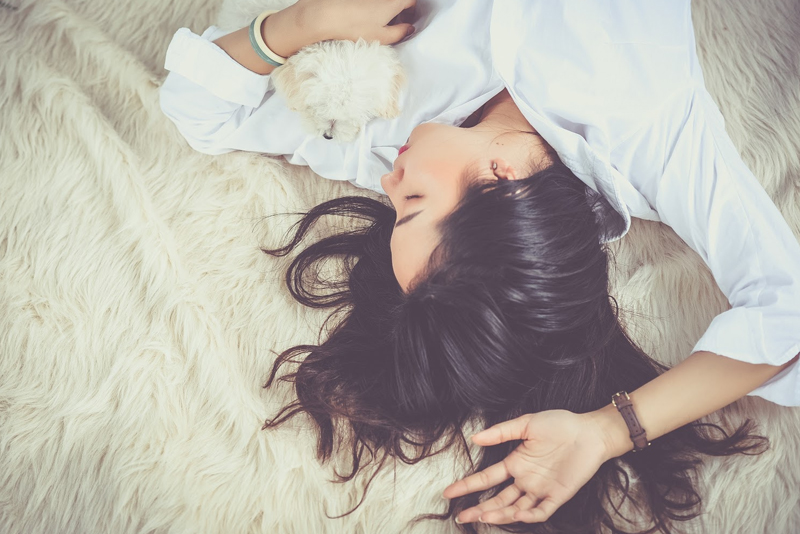You’ve always wondered, does your body temperature drop when you sleep? Or, have you wondered why sleep is so elusive on hot summer nights while heat during the day makes you sluggish and drowsy? This is due to thermoregulation and here’s exactly how body temperature while sleeping affects your quality of sleep.

What Is Thermoregulation?
By now, you’ve probably observed that your body temperature changes and continues to change throughout the night as you sleep.
This fluctuation occurs because humans are warm-blooded and can regulate body heat internally.
The process that gives our body the ability to control [1] it’s core internal temperature is called thermoregulation. Through this evolutionary process, the body can produce and deflect heat, functioning as the body’s internal thermostat.

Thermoregulation – Optimal Body Heat While You Sleep
Typically, our body temperature decreases by one to two degrees when we are sleeping. Evidence suggests that this decrease in temperature helps the body to conserve energy and direct energy to other parts of the body. No wonder many people think of sleep as recharging a battery.

Temperature Zones While You Sleep
Body temperature is regulated in two zones, the core temperature, and the shell temperature.
The brain regulates the core temperature of our body’s most vital organs, therefore the abdomen, the torso, and the head are part of what’s known as the ‘core temperature zone’ [2]. Because these areas are well-protected and well-regulated, they are less susceptible to the effects of extreme changes in temperature.
The body’s ‘shell temperature’ comprises the temperatures of the skin, the tissues just underlying it and the muscles. Through the shell zone, internal body temperature is regulated by releasing or conserving heat during normal states of wakefulness or sleep. The shell temperature is the most impacted by external temperatures.

Thermoregulation – The Body Acts When Things Heats Up
When we become hot, whether it be through exercise, overexertion or a warm room, our blood vessels start dilating. However, our bodies have the ability to combat heat when our core temperatures become too high.
This is why we perspire. Our pores open to help lower body temperature upon the release and evaporation of sweat.
The opposite occurs when our core temperature becomes too low. Our blood vessels constrict. This function is a necessary process and is the body’s way of conserving heat. It’s the reason our skin reddens when we are cold.
Another way the brain regulates the core temperature is by prompting the body to shiver involuntarily. This happens when the hypothalamus orders your muscles to start moving to generate natural body heat.
If the body gets too cold, the brain prioritizes which among the internal organs need heat and shunts warmth away from your limbs and skin.

Core Temperature and Sleep
How well you sleep throughout the night depends a lot on your body’s core temperature.
Our internal body clock aka circadian rhythm, influences many body processes, including hormonal activity and body temperature. These processes function together and help the body remain active and awake during the day, influencing the way we sleep at night.

MUST READ Why Total Sleep is More Important Than REM Sleep (Rapid Eye Movement)
If your sleep environment becomes too cold or too hot, your body may struggle to maintain its optimal temperature.
Extreme shifts in temperature are often the culprits of restless nights. It’s also why some people have fragmented sleep or have difficulty in falling asleep.

Thermoregulation – When Your Room Becomes Too Hot
An overheated sleep environment prompts the body to work hard to cool itself. This is because the body associates heat with activity.
Increased body temperature will tell your internal body clock to be more awake and alert, disrupting all stages of sleep including REM.
Dated mattresses tend to retain heat as the technology in the build and materials just weren’t designed for advanced real-time cooling. Modern mattresses, such as the Tomorrow Sleep Hybrid and All Foam leverage phase change material, proprietary cooling foams and premium ventilation to help maintain a cool sleep environment.
Sleep quality is directly affected by temperature, among other factors. It’s common for most of us to think that insomnia is the cause of fractured sleep, but it might be worth turning down the room temperature before you place the blame on your internal clock.
A little trivia for those who are curious: early birds and night owls owe their routines and body clocks to body temperatures. During sleep cycles, people who tend to wake up early, have a body temperature that also peaks [4] earlier. The opposite is true for those who are more comfortable waking up later.

Thermoregulation – Sleep Calm, Sleep Cool, Sleep Well
Getting a more restful night’s sleep may require some preparation. Start with few basic lifestyle and sleep-environmental changes.
Sleep Routines and Hygiene
- Exercise during the day; do it regularly if you can.
- Exposure to sunlight during the day can help you sleep better at night.
- Avoid excessive caffeine during the day.
- Do things that will help relax rather than stimulate you, just before going to bed, like taking a warm shower.
Control Your Sleep Environment
- Keep your bedroom clutter-free
- Cool, dark, and quiet environments help promote sleep
- Lower your room temperature to the mid-60s (Fahrenheit)
- Use natural fiber in your sleep clothes and bedding
- Choose a temperature-regulating mattress
Along with lifestyle changes, optimizing your sleeping environment is one of the easiest and most practical changes you can make to help promote a restful sleep.
Thermoregulation Resources;
[1] Encyclopaedia Britannica; Thermoregulation.
[2] US National Library of Medicine National Institutes of Health; Skin temperature: its role in thermoregulation, A. A. Romanovsky, March 2014.
[3] US National Library of Medicine National Institutes of Health; Relationship between alertness, performance, and body temperature in humans, Wright KP Jr, Hull JT, Czeisler CA, August 15, 2002.
[4] US National Library of Medicine National Institutes of Health; Association of intrinsic circadian period with morningness-eveningness, usual wake time, and circadian phase, Duffy JF, Rimmer DW, Czeisler CA, August 2001.


